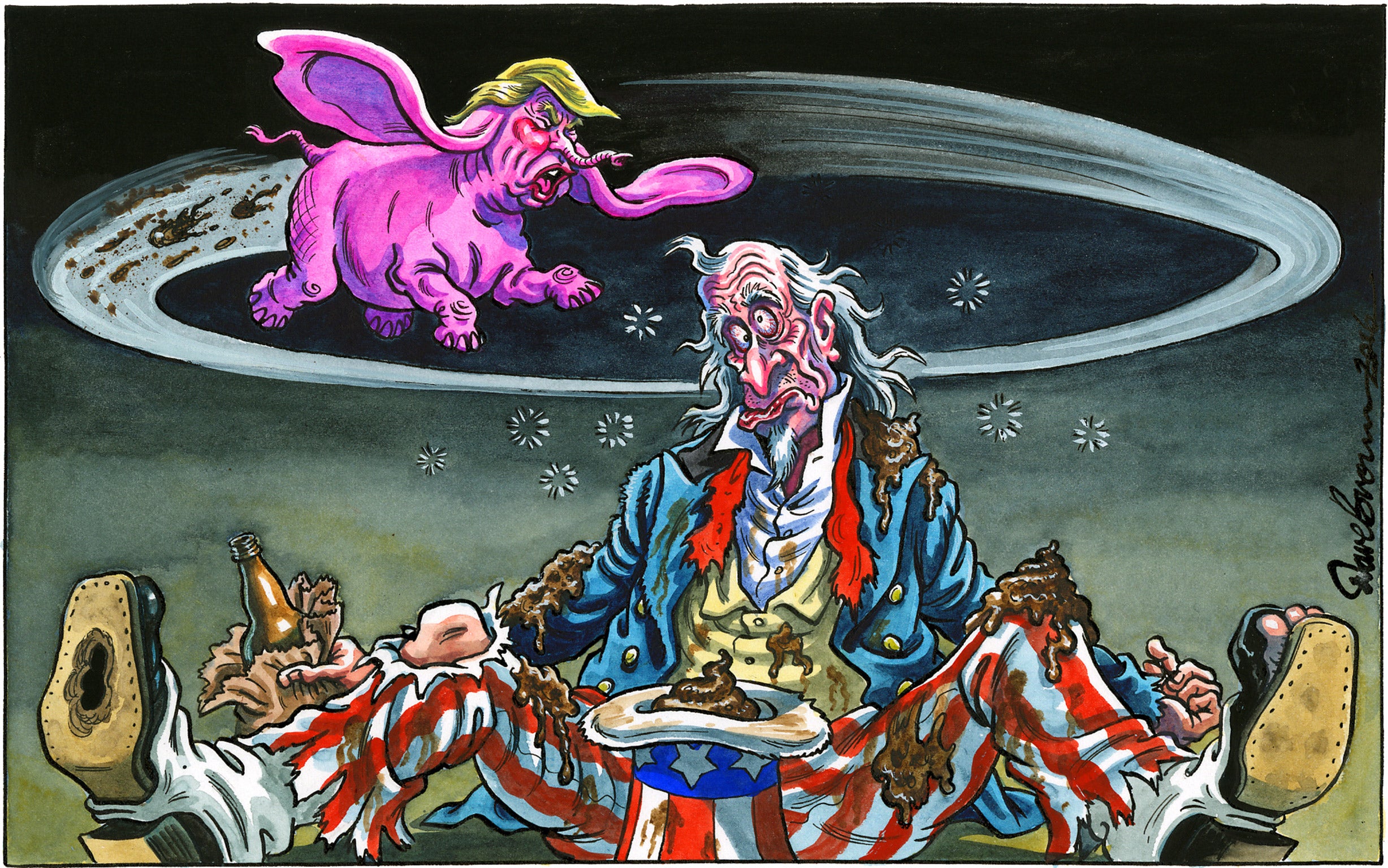Donald Trump and Bernie Sanders victories point to a dissatisfaction with the state of US politics
The pair's triumphs in New Hampshire are a stunning, seismic expression of voter disgust with both major parties

Your support helps us to tell the story
From reproductive rights to climate change to Big Tech, The Independent is on the ground when the story is developing. Whether it's investigating the financials of Elon Musk's pro-Trump PAC or producing our latest documentary, 'The A Word', which shines a light on the American women fighting for reproductive rights, we know how important it is to parse out the facts from the messaging.
At such a critical moment in US history, we need reporters on the ground. Your donation allows us to keep sending journalists to speak to both sides of the story.
The Independent is trusted by Americans across the entire political spectrum. And unlike many other quality news outlets, we choose not to lock Americans out of our reporting and analysis with paywalls. We believe quality journalism should be available to everyone, paid for by those who can afford it.
Your support makes all the difference.In a sense, the results of the New Hampshire primary, almost exactly predicted by the polls, were no surprise. Yet the victories of Donald Trump and Bernie Sanders are a stunning, seismic expression of voter disgust with both major parties and with the failings of dysfunctional American politics in general.
New Hampshire, tiny and monochrome white, is far from the most representative of US states and it has done this sort of thing before – most notably in 1968 when the Democratic insurgent Eugene McCarthy’s strong showing led Lyndon Johnson, the incumbent President, not to seek re-election. But never has it sent the message so forcefully and universally, and with such imponderable consequences.
On the Democratic side Mr Sanders, the self-described socialist who was an afterthought only six months ago, humiliated the establishment candidate Hillary Clinton, by far the best qualified for the White House in either party. Alas, experience counts for little in 2016. It was assumed she would win the nomination in a canter. She is still probably the favourite to do so, given her large lead among African-American and Hispanic voters. But newly energised younger voters and even women are flocking to Mr Sanders in droves.
Nothing succeeds like success. The Vermont Senator, with his egalitarian anti-Wall Street and pro-working man message, could now win significant support from trade unions, usually a bulwark of the Clinton coalition. He is also raising at least as much money, and spending less of it, than the former First Lady. She now faces not a canter but a long and very hard slog, of uncertain outcome.
The Democratic race is crystal clear compared with the mess on the Republican side. The hope of Republican elders (for what that discredited clan is now worth) was that Iowa and New Hampshire together would winnow the field, leaving one “establishment” candidate to face Mr Trump and Ted Cruz, the victor in Iowa. That candidate might have been Marco Rubio, had he not run into the Chris Christie wrecking ball during last Saturday’s debate.
Mr Rubio stumbled badly, allowing Governor John Kasich of Ohio and the former Florida Governor Jeb Bush back into contention (though not Mr Christie, Governor of New Jersey: he who wields the dagger shall never wear the crown). Combine the vote of the four in New Hampshire, and they comfortably exceed that of Mr Trump. Divided, however, they fall. The muddle will continue into next weekend’s South Carolina primary (where Mr Trump has his habitual 35 per cent or so of support) and probably beyond – to the advantage of Mr Trump, and to a lesser extent of Mr Cruz.
Further down the line, further shocks are possible. If Messrs Trump and Sanders are set to prevail, the former New York Mayor Michael Bloomberg may get into the race as an independent – setting up one billionaire businessman against another (and, incidentally, one 74-year-old Jewish New Yorker against another).
Nothing, it must be repeated ad nauseam in this extraordinary political year, is carved in New Hampshire granite. But history provides a sobering footnote. With the single exception of 1992, when Bill Clinton skipped Iowa completely and finished second in New Hampshire, no candidate in the primary era has won his party’s nomination without winning one of the two states. If that changes nothing for the Democrats, precedent suggests that either Mr Trump or Mr Cruz will be the eventual Republican nominee. History of course is made to be rewritten. But we have been warned.
Join our commenting forum
Join thought-provoking conversations, follow other Independent readers and see their replies
Comments